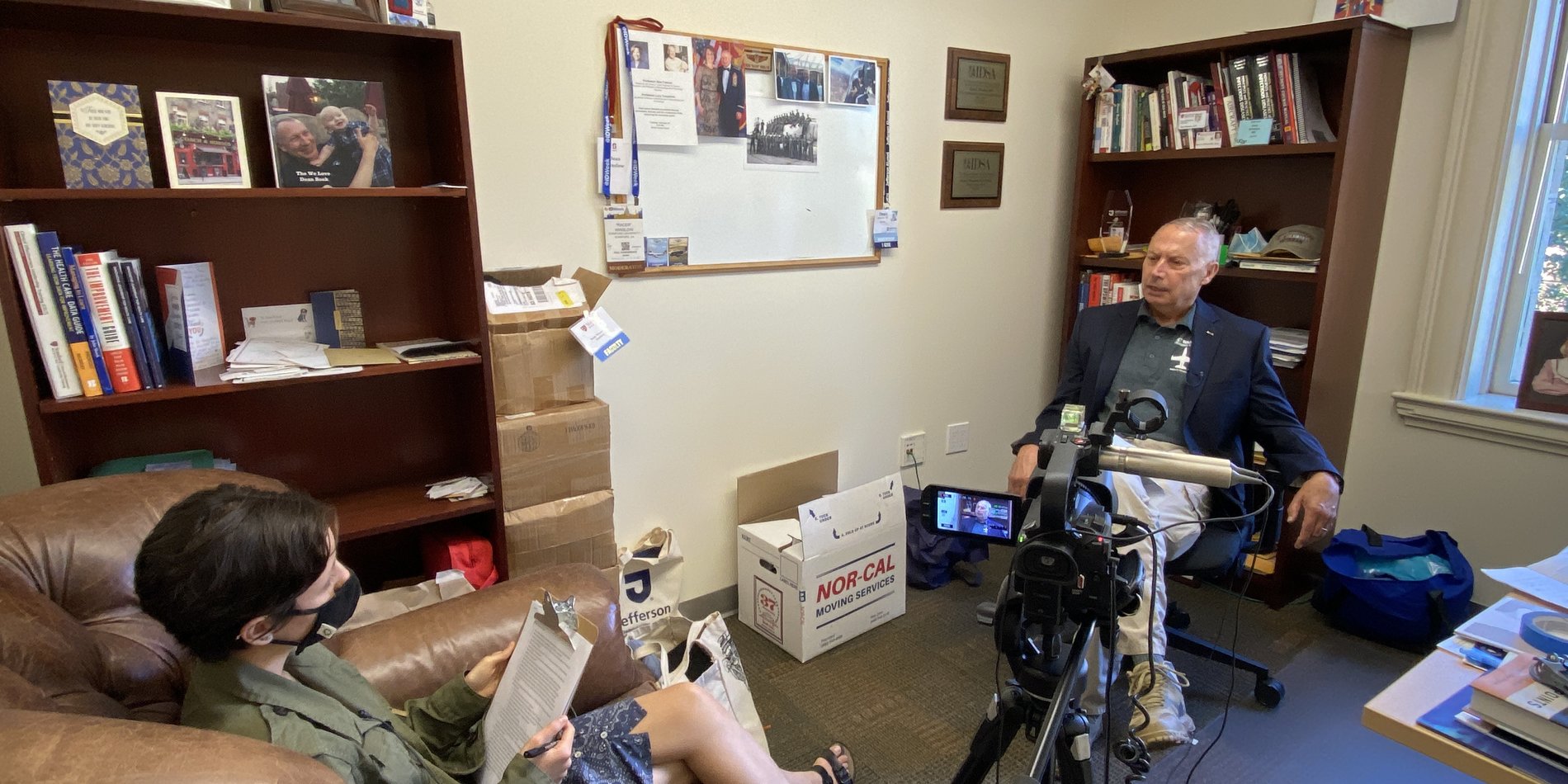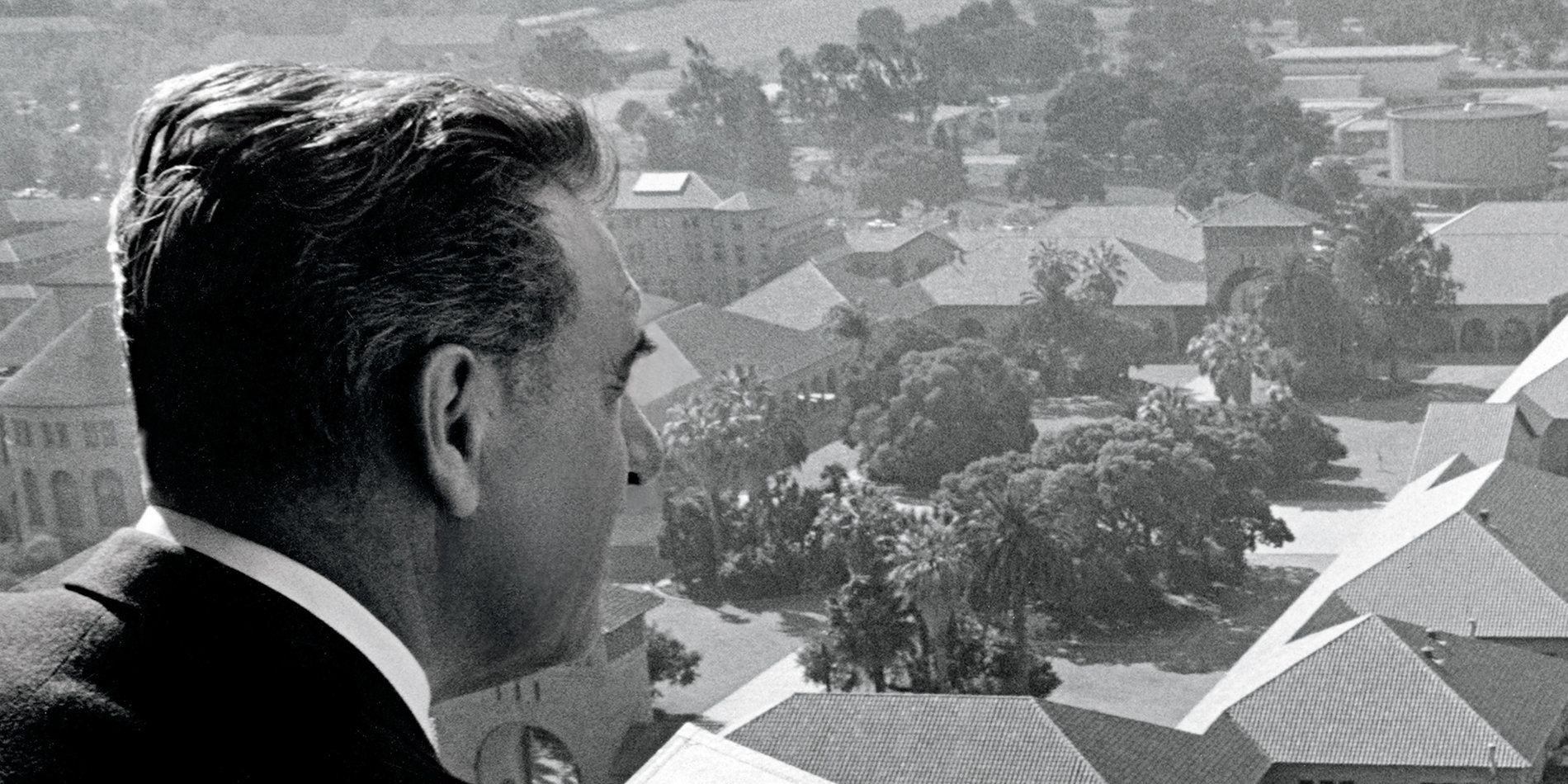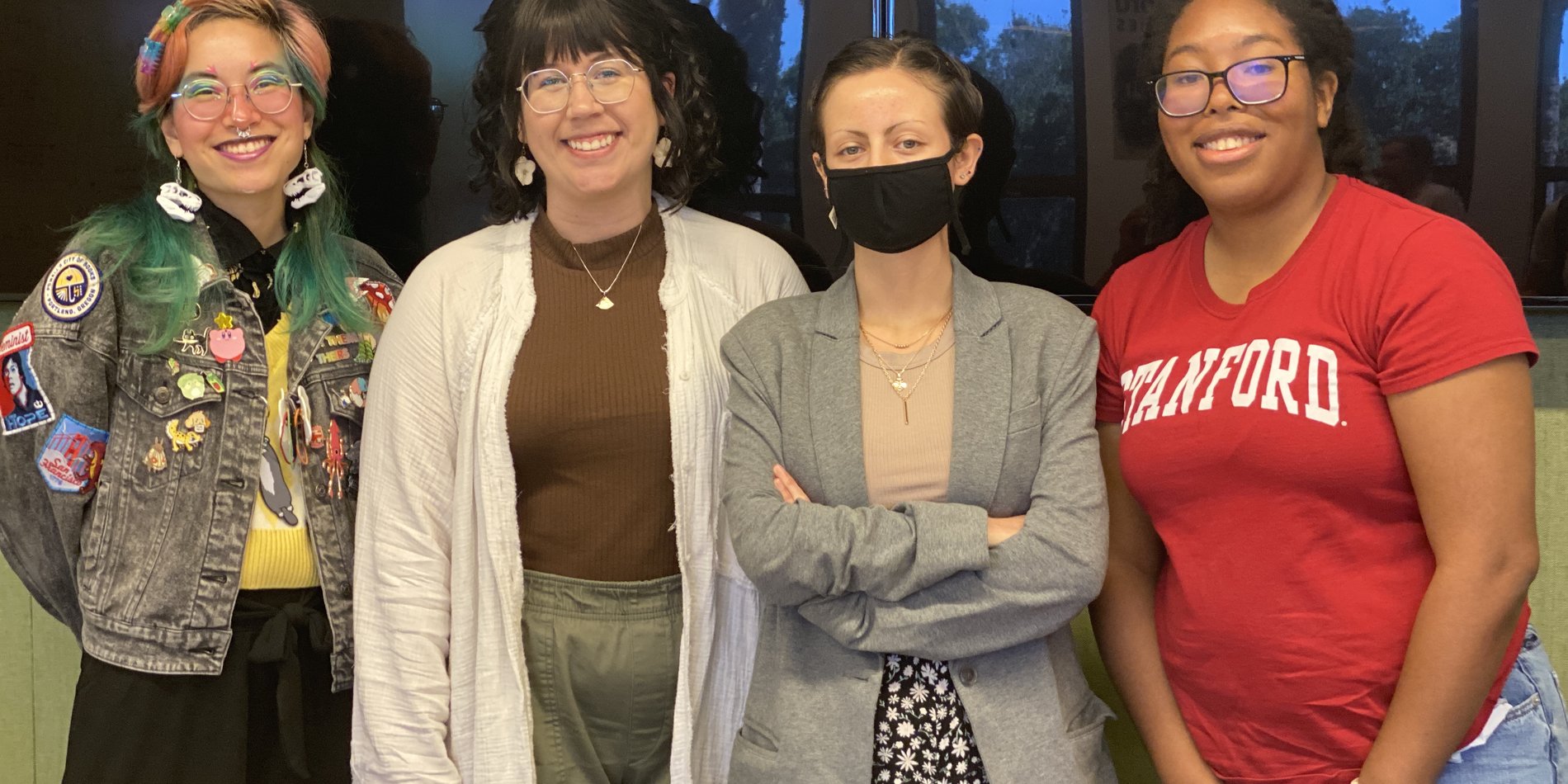Guest Blogger: Summer Intern Jordan Pollock

Jordan Pollock interviewing Dean Winslow for the Stanford, COVID-19 and the Crisis of 2020 Oral History Project (Stanford Historical Society)
Capturing history might be just as challenging as making said history. While serving as a summer intern for the Stanford Historical Society Oral History Program, I learned more about what went on behind the scenes. Though a small-scale production, it is still a production – there are many eyes and ears on an interview before it is sent to the University Archives and many individual efforts made to get interviews ready as soon as possible, so it can be made available to those at Stanford as well as the broader research community. In doing so, the oral history program is giving scholars access to interviews that illuminate vital aspects of history, especially as it relates to Stanford, the institution. Additionally, it is giving students the ability to view these interviews, and hopefully, like me, they can take personal interest in these stories. We, students on the precipice of various life trajectories, our courses changing with the smallest variance, can see the paths of those that came before us and what the results were – our decisions becoming ones we make evidentially.
This is to say, there are many chances to make mistakes and find opportunities, but it is questionable whether as a twenty-two-year-old, one is wise enough to recognize either. Alumni interviews in particular allow us to practice spotting these naive mistakes and niggling insights turned successes. Perhaps wisdom is the ability to recognize that no one really knows what they’re doing when they leave Stanford, but they figure it out more or less. Still, I believe that it is advantageous to see oneself as an actor in a greater production (one of many) and make rough calculations based upon the history of past actors, how likely one is to achieve what they want from pursuing a particular path. From such interviews, one gains a conceptual knowledge of different sectors of society – be it technology, finance, business, medicine, academia, arts, and so on – and the limitations of each. Comprehensive interviews which come to mind include that of Elizabeth Kozleski for education and Tara Harrington for medicine. One is to ask, do I want to take on the confines and limitations that such and such from the interview took on by working in academia? Or, can I manage the unpredictable nature of politics and understand that nothing is a given? Or, more generally, can I move between fields and industries? Does the nature of the world, as I understand it from the lived histories, support my being a dynamic individual? And so, by borrowing from the experiences of others, we understand the nature of existence within the world that we have co-created, past and present actors in collaboration.
Collaboration is key to both the production of interviews and establishing them as important and relevant sources, for scholarly and experiential pursuits, wherein we recognize our current biases and allow for variation in a narrative to expose a broader set of human inclinations and perceptual qualities. For this to be successful, we must consult with one another, senior and junior members of the Oral History Program alike, and ask, with humility, Is there a better way to preserve this history (or more specifically) this personal account of history? In doing so, we take a stance against the common practice of writing a supposedly, though debatably, objective account of historical events. Rather, we allow all accounts to exist at once, in tandem, in support and in contradiction, and make each legitimate simply because they were experienced, perceived and recalled upon. An oral history, then, might more aptly be described as the history of the experience of history. For reasons such as these, a collection of oral histories might be the most honest and complete depiction of actors and events a true historian might find.


